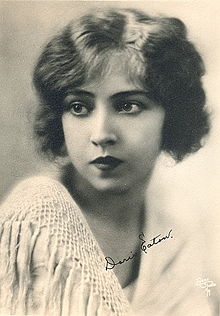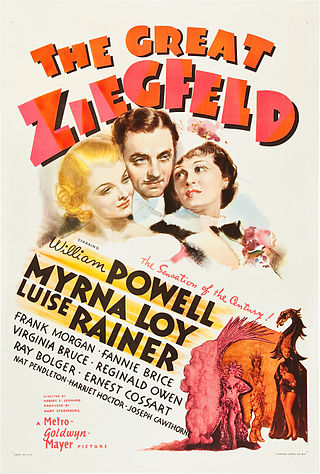
The Great Ziegfeld is a 1936 American musical drama film directed by Robert Z. Leonard and produced by Hunt Stromberg. It stars William Powell as the theatrical impresario Florenz "Flo" Ziegfeld Jr., Luise Rainer as Anna Held, and Myrna Loy as Billie Burke.
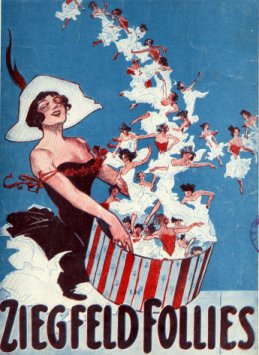
The Ziegfeld Follies were a series of elaborate theatrical revue productions on Broadway in New York City from 1907 to 1931, with renewals in 1934, 1936, 1943, and 1957. They became a radio program in 1932 and 1936 as The Ziegfeld Follies of the Air.
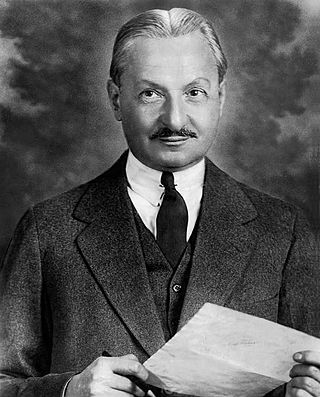
Florenz Edward Ziegfeld Jr. was an American Broadway impresario, notable for his series of theatrical revues, the Ziegfeld Follies (1907–1931), inspired by the Folies Bergère of Paris. He also produced the musical Show Boat. He was known as the "glorifier of the American girl". Ziegfeld is a member of the American Theater Hall of Fame.

Beatrice Gladys Lillie, Lady Peel, known as Bea Lillie, was a Canadian-born British actress, singer and comedic performer.

Marilyn Miller was one of the most popular Broadway musical stars of the 1920s and early 1930s. She was an accomplished tap dancer, singer and actress, and the combination of these talents endeared her to audiences. On stage, she usually played rags-to-riches Cinderella characters who lived happily ever after. Her enormous popularity and famed image were in distinct contrast to her personal life, which was marred by disappointment, tragedy, frequent illness, and ultimately her sudden death due to complications of nasal surgery at age 37.
Ziegfeld Girls were the chorus girls and showgirls from Florenz Ziegfeld's theatrical Broadway revue spectaculars known as the Ziegfeld Follies (1907–1931), produced in New York City. The revues were based on the Folies Bergère of Paris.
Vilma Ebsen was an American musical theatre and film actress best known for dancing in Broadway shows and Metro-Goldwyn-Mayer musicals in the 1930s with her brother Buddy Ebsen.
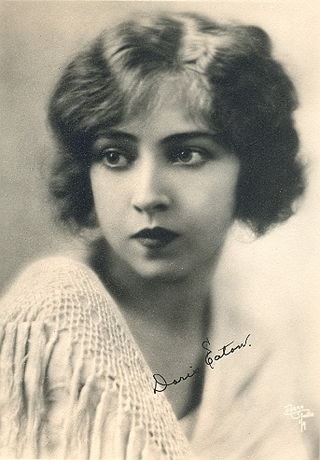
Doris Eaton Travis was an American dancer, stage and film actress, dance instructor, owner and manager, writer, and rancher, who was the last surviving Ziegfeld Girl, a troupe of acclaimed chorus girls who performed as members in the Broadway theatrical revues of the Ziegfeld Follies.

Mary Eaton was an American stage actress, singer, and dancer in the 1910s and 1920s, probably best known today from her appearance in the first Marx Brothers film, The Cocoanuts (1929). A professional performer since childhood, she enjoyed success in stage productions such as the Ziegfeld Follies. She appeared in another early sound film, Glorifying the American Girl (1929). Her career declined sharply during the 1930s.
Charles Eaton was an American juvenile stage and film performer, and the most important performing male member of the sibling clan once referred to as The Seven Little Eatons. At one time or another, all the siblings appeared in The Ziegfeld Follies each year between 1918 through 1923.

Anna Pennington was an American actress, dancer, and singer who starred on Broadway in the 1910s and 1920s, notably in the Ziegfeld Follies and George White's Scandals.
Pearl Eaton Levant was an American Broadway performer, actress, choreographer, and dance supervisor of the 1910s and 1920s.

Blanche Ring was an American singer and actress in Broadway theatre productions, musicals, and Hollywood motion pictures. She was best known for her rendition of "In the Good Old Summer Time."

John Murray Anderson was a Canadian theatre director and producer, songwriter, actor, screenwriter, dancer and lighting designer, who made his career in the United States, primarily in New York City and Hollywood. He worked in almost every genre of show business, including vaudeville, Broadway, and film. He also directed plays in London.
Sonia Karlov was an American dancer, stage, and motion picture actress from Syracuse, New York. Her birth name was Alma Jeanne Williams.

Bird Millman O’Day was one of the most celebrated high-wire performers of all time. During the “Golden Age of the American Circus,” she was a premiere attraction with the Ringling Brothers and Barnum and Bailey Circus.

Kay Laurell was an American stage and silent film actress and model.

"A Pretty Girl Is Like A Melody" is a popular song written by Irving Berlin in 1919 which became the theme song of the Ziegfeld Follies. The first verse and refrain are considered part of the Great American Songbook and are often covered as a jazz standard.
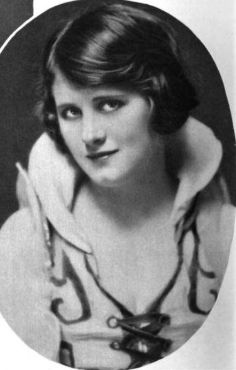
Alta L. King was an American dancer, singer, and Ziegfeld girl in musical theatre.

Patricia Bowman was an American ballerina, ballroom dancer, musical theatre actress, television personality, and dance teacher.
